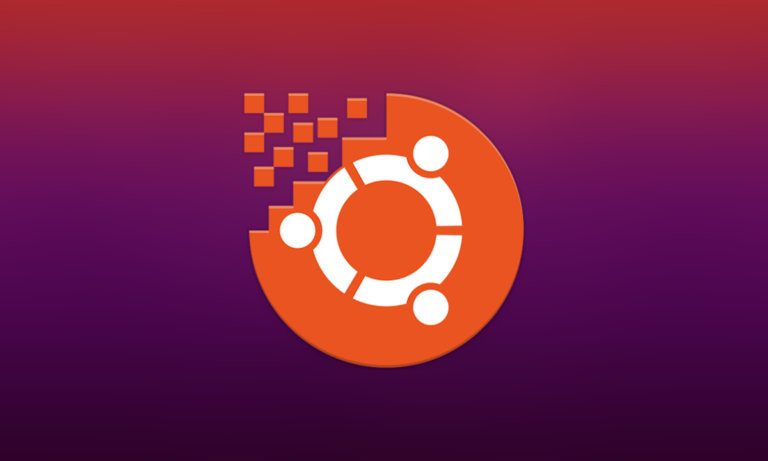Are you looking to take your online business to the next level? Understanding e-commerce hosting is essential for the success of your online store.
In this article, we will explore the different types of e-commerce hosting solutions available, including shared hosting, VPS hosting, dedicated server hosting, cloud hosting, and managed hosting.
We will also discuss the key features to look for in e-commerce hosting solutions, as well as provide tips on how to choose the right hosting solution for your business.
Enhance your online presence by diving into the world of e-commerce hosting!
Key Takeaways:
- E-commerce hosting solutions are specialized web hosting services designed for online businesses to provide a platform for their website and online transactions.
- There are different types of e-commerce hosting solutions, including shared hosting, VPS hosting, dedicated server hosting, cloud hosting, and managed hosting, each with its own unique features and advantages.
- Key features to look for in e-commerce hosting solutions include scalability, reliability, security, compatibility with e-commerce platforms, and quality customer support. It’s important to evaluate your business needs, budget, and research and compare different providers before choosing the right solution.
What Is E-commerce Hosting?
E-commerce hosting refers to specialized web hosting services designed to support and optimize online businesses and e-commerce websites, leveraging cloud technology to deliver reliable and scalable solutions. These hosting providers cater to the unique needs of e-commerce sites, ensuring secure transactions, seamless performance, and robust data management.
Cloud technology plays a crucial role in e-commerce hosting by offering flexible resources that can adapt to fluctuating website traffic, ensuring smooth operation during peak periods. Hosting providers also offer benefits such as automatic backups, advanced security measures, and round-the-clock technical support, essential for maintaining the continuous availability of online stores. E-commerce hosting services often include features like SSL certificates for secure transactions, PCI compliance for payment processing, and content delivery networks for enhanced site speed and global reach.
What Are the Different Types of E-commerce Hosting Solutions?
Various types of e-commerce hosting solutions cater to different business needs and requirements, offering a range of hosting environments to support online stores and e-commerce platforms. These solutions include shared hosting, VPS hosting, dedicated server hosting, cloud hosting, and managed hosting, each with its unique features and benefits.
Shared hosting is an ideal option for small to medium-sized businesses looking for an affordable solution, where multiple websites share a single server. VPS hosting offers more control and flexibility by partitioning a physical server into virtual servers, giving businesses dedicated resources with scalability. On the other hand, dedicated server hosting provides exclusive use of a server, suiting large enterprises with high-traffic websites. Cloud hosting offers scalability and reliability through virtual servers across multiple physical servers, ensuring uptime and flexibility. Managed hosting, suitable for businesses lacking technical expertise, provides comprehensive support and maintenance services.
Shared Hosting
Shared hosting is a cost-effective e-commerce hosting option where multiple websites share resources on a single server, offering basic hosting features and limited customization opportunities for online businesses. It provides a budget-friendly hosting solution for small e-commerce sites with moderate traffic and resource requirements.
Shared hosting is ideal for small online businesses that do not have high traffic or complex website needs. This type of hosting is known for its affordability, making it attractive to startups and smaller e-commerce ventures who want to keep their operational costs low. The resource-sharing model of shared hosting allows websites to benefit from economies of scale, enabling cost savings as server maintenance and management fees are split among multiple users.
One of the limitations of shared hosting lies in its lack of customization options. Websites using shared hosting may have restrictions on certain software installations or configurations due to the standardized nature of the server environment. This can limit the flexibility for businesses that require specific software or server setups.
Shared hosting offers simplicity and ease of use for businesses looking for a hassle-free hosting solution without the complexities of server management. While it is suitable for small online businesses with consistent traffic patterns, companies experiencing sudden spikes in traffic or requiring higher performance levels may face challenges due to the shared nature of resources in this hosting environment.
Virtual Private Server (VPS) Hosting
VPS hosting offers a more scalable and resource-rich e-commerce hosting solution compared to shared hosting, providing dedicated virtual server resources for increased performance, flexibility, and control over server configurations. It suits growing online stores that require enhanced scalability and customization options.
One of the biggest benefits of VPS hosting lies in its scalability. As an e-commerce business owner, having the ability to easily scale your resources up or down based on your evolving needs is crucial. With VPS hosting, you can allocate resources like CPU, RAM, and storage space according to your specific requirements, ensuring optimal performance at all times.
The customization capabilities of VPS hosting give the power to you to tailor your server environment to match the unique demands of your e-commerce store. This level of control allows you to optimize your website’s performance and security, leading to a smoother shopping experience for your customers.
When compared to shared hosting, VPS hosting stands out in terms of performance and control. With shared hosting, you are limited by the activities of other websites sharing the same server, potentially leading to slower loading times and decreased reliability. On the other hand, VPS hosting provides dedicated resources and greater control over server configurations, ensuring consistent performance and enhanced security for your online store.
Dedicated Server Hosting
Dedicated server hosting provides exclusive server resources and enhanced performance for e-commerce sites, offering full control over server configurations and optimal website speed. It is ideal for high-traffic online stores and businesses requiring robust hosting solutions.
With dedicated server hosting, businesses have the advantage of complete server control. This means they can customize server settings to suit their specific needs, ensuring optimal performance and reliability. High-traffic online stores can benefit greatly from dedicated servers as they offer the necessary bandwidth and processing power to handle increased website traffic without compromising speed or uptime.
Cloud Hosting
Cloud hosting leverages cloud technology to deliver flexible, scalable, and reliable hosting solutions for e-commerce businesses, utilizing distributed data centers and infrastructure to ensure high availability and performance. It offers on-demand resources and pay-as-you-go pricing for cost-effective scalability.
By utilizing the strength of cloud technology, e-commerce websites can benefit from the inherent redundancy and load-balancing features of cloud hosting. This ensures that even during peak traffic times, the website remains accessible and performs optimally. The scalability of cloud hosting allows businesses to easily adjust their resources based on traffic fluctuations, avoiding downtime or slow performance. The pay-as-you-go model of cloud hosting means that businesses only pay for the resources they actually use, making it a cost-effective option for dynamic online operations. Cloud hosting provides a reliable, high-performance, and flexible infrastructure that is well-suited for the ever-changing needs of e-commerce businesses.”
Managed Hosting
Managed hosting services offer comprehensive e-commerce hosting solutions with full infrastructure management, technical support, and security features including SSL certificates for enhanced data protection. It provides a hands-off approach for businesses, allowing them to focus on core operations while ensuring reliable hosting services.
One of the key advantages of managed hosting for e-commerce is the seamless streamlining of hosting operations. By entrusting the management of hosting infrastructure and security to experts, businesses can enjoy dedicated support and maintenance, minimizing downtime and potential risks.
- Full-Service Offerings: Managed hosting providers handle the setup, monitoring, and maintenance of servers, databases, and software, ensuring that e-commerce websites run smoothly and efficiently.
- Enhanced Security: With SSL certificates included as part of the service, sensitive data transmission is encrypted, protecting customer information and instilling trust in online transactions.
- Scalability and Flexibility: Managed hosting services are designed to accommodate the growth of e-commerce businesses, offering scalable resources and customizable solutions to meet evolving needs.
What Are the Key Features to Look for in E-commerce Hosting Solutions?
When choosing an e-commerce hosting solution, key features to consider include scalability and flexibility for accommodating business growth, reliability and uptime guarantee for seamless operation, robust security measures for data protection and PCI compliance, compatibility with e-commerce platforms like WooCommerce, and responsive customer support for technical assistance.
Scalability plays a crucial role in e-commerce hosting as it allows businesses to expand their operations without experiencing performance issues. A scalable hosting solution can adapt to increased website traffic and data storage needs, ensuring a smooth shopping experience for customers.
Reliability is essential to maintain the availability of your online store 24/7. A hosting provider that offers an uptime guarantee helps prevent potential revenue loss due to website downtime, instilling trust and confidence in your brand.
Security is paramount in the digital age, especially for e-commerce sites handling sensitive customer information. Implementing robust security measures and ensuring PCI compliance safeguards against cyber threats and instills trust in customers to make online purchases.
Scalability and Flexibility
Scalability and flexibility are crucial considerations in e-commerce hosting solutions, allowing businesses to adjust resources, accommodate traffic spikes, and scale applications as their needs evolve. A scalable hosting environment ensures optimal performance and adaptability to changing business demands.
Resource allocation plays a vital role in scalable hosting, enabling companies to allocate additional resources seamlessly as their operations grow. Effective traffic management is another key aspect; a scalable hosting solution efficiently handles sudden surges in website visitors without compromising performance.
Application scalability is essential in e-commerce hosting, as it allows businesses to expand their online platforms and services without facing technical limitations. By investing in a scalable hosting infrastructure, companies can ensure they have the capacity and flexibility to quickly adapt to market dynamics and customer needs.
Reliability and Uptime Guarantee
Reliability and uptime guarantee are critical features in e-commerce hosting solutions, ensuring consistent performance, minimal downtime, and reliable access to online stores for customers. An uptime guarantee signifies the hosting provider’s commitment to operational continuity and service reliability.
When customers visit an e-commerce site, they expect a seamless experience without delays or disruptions in service. By having a reliable hosting service with robust uptime guarantees, businesses can establish trust with their audience, showcasing a dependable online presence. This trust translates directly into enhanced credibility for the business, signaling to customers that their transactions and data are secure and accessible at all times. The operational efficiency gained from reliable hosting enables businesses to focus on growth and innovation rather than dealing with technical issues and website downtime.
Security and Compliance
Security and compliance features are paramount in e-commerce hosting solutions to safeguard customer data, ensure payment security, and maintain PCI compliance standards. Robust security measures like SSL certificates and data encryption protect sensitive information and build trust with online shoppers.
SSL certificates play a crucial role in establishing a secure connection between a website and its visitors, encrypting data exchanged to prevent unauthorized access. This encryption protocol ensures that sensitive details such as credit card information or personal data are transmitted securely, reducing the risk of cyberattacks and identity theft.
Compliance standards such as PCI DSS (Payment Card Industry Data Security Standard) are essential for e-commerce businesses to follow to safeguard cardholder data and prevent fraud. Adhering to these regulations not only protects customers but also helps businesses avoid hefty fines and reputational damage due to data breaches.
E-commerce Platform Compatibility
E-commerce hosting solutions should offer seamless compatibility with popular e-commerce platforms like WordPress and WooCommerce, facilitating easy setup, integration, and optimization of online stores. Ensuring platform compatibility simplifies the development process and enhances the functionality of e-commerce websites.
Compatibility with platforms such as WordPress and WooCommerce allows businesses to leverage the extensive features and plugins these platforms provide. By integrating smoothly with these platforms, hosting solutions can streamline tasks like product listing, inventory management, payment processing, and order fulfillment. This seamless integration not only saves time for e-commerce entrepreneurs but also enables them to focus more on business growth strategies rather than getting caught up in technical complexities.
Customer Support and Technical Assistance
Comprehensive customer support and technical assistance are essential components of e-commerce hosting solutions, providing businesses with responsive services, troubleshooting expertise, and round-the-clock support for operational continuity. Effective customer support ensures prompt resolution of issues and enhances user satisfaction.
Expert guidance and timely assistance play a crucial role in maintaining the smooth functioning of online businesses. In the competitive landscape of e-commerce, having access to reliable support can make a significant difference in resolving technical challenges quickly and efficiently. This personalized assistance not only helps in troubleshooting but also builds trust and loyalty among customers. The availability of 24/7 support ensures that any issues that arise can be addressed promptly, leading to enhanced operational efficiency and overall positive customer experiences.
How to Choose the Right E-commerce Hosting Solution for Your Business?
Selecting the ideal e-commerce hosting solution involves assessing your business needs, evaluating budget constraints, researching different hosting providers, reading reviews, and testing the hosting solution before finalizing your choice. By considering these key factors, businesses can make informed decisions tailored to their specific requirements.
Once you have identified your business needs and set a budget, the next step is to delve into researching different e-commerce hosting providers. Look into their reputation, uptime rates, security features, customer support, scalability options, and pricing structures. It’s essential to gather information by reading reviews from other businesses to understand their experiences. Creating a comprehensive list of pros and cons for each provider can aid in making an objective comparison.
After conducting provider research, it is crucial to delve into a detailed analysis of the gathered information. This involves comparing the features, service levels, and pricing plans offered by each provider to align them with your business requirements. Engaging in trial evaluations, such as testing the provider’s performance, loading speeds, interface user-friendliness, and available support options, can help in experiencing how the hosting solution functions in real-time.
Evaluate Your Business Needs and Goals
Before choosing an e-commerce hosting solution, businesses must evaluate their specific needs, technological requirements, and long-term goals to align the hosting environment with their operational objectives. Understanding business needs is essential for selecting a solution that supports growth and scalability.
One crucial aspect in the evaluation process is ensuring that the selected e-commerce hosting solution is capable of accommodating the present and future needs of the business. Technology alignment plays a vital role in ensuring that the hosting environment supports the required software, integrations, and tools used by the business.
Scalability considerations are paramount to prevent issues such as downtime or performance bottlenecks as the business grows. An e-commerce hosting solution that can scale with the business ensures a seamless online shopping experience for customers, regardless of traffic spikes or increased product offerings.
Consider Your Budget and Cost-Effectiveness
Budget considerations play a crucial role in choosing an e-commerce hosting solution, with businesses needing to balance cost-effectiveness, pricing structures, and service quality to optimize their hosting investments. Evaluating costs against features and performance metrics helps businesses make cost-effective hosting decisions.
When selecting an e-commerce hosting provider, it’s essential to scrutinize not only the initial costs but also the long-term expenses associated with maintenance, upgrades, and scalability. Typically, a comprehensive assessment of pricing structures should encompass not just the base fees but also any potential add-ons, data transfer fees, or overage charges that may arise. Examining the support and security features included in the package is paramount to ensure that your online store remains operational and protected from cyber threats.
Research and Compare Different Hosting Providers
Conducting thorough research and comparing various hosting providers is essential for identifying the best-fit e-commerce hosting solution that aligns with business requirements, performance expectations, and support needs. Comparing provider features, services, and customer reviews aids in making an informed hosting choice.
When looking into the realm of e-commerce hosting providers, it’s crucial for businesses to scrutinize every aspect meticulously. Evaluating the service offerings in depth is paramount, as it directly impacts the overall performance and user experience. Setting performance benchmarks can help gauge the provider’s capability to meet the business’s demands efficiently. Gathering insights from existing customers’ feedback helps in understanding the real-world experiences and satisfaction levels, guiding towards a well-rounded decision-making process.
Read Reviews and Ask for Recommendations
Reading customer reviews and seeking recommendations from industry experts or peers can provide valuable insights into the performance, reliability, and service quality of different e-commerce hosting solutions offered by various providers. Leveraging feedback and recommendations helps businesses gauge the suitability of hosting solutions for their specific needs.
Customer reviews often contain details about real-world experiences, highlighting aspects like uptime, customer support responsiveness, security features, and scalability. These insights can help businesses anticipate potential challenges or advantages that may align with their requirements.
Expert recommendations offer an informed perspective on technological trends, platform compatibility, and overall market reputation, aiding in decision-making. Leveraging a combination of user feedback and expert insights allows businesses to make well-informed choices that align with their long-term strategic goals and operational requirements. User feedback and referrals play a crucial role in steering companies towards e-commerce hosting solutions that not only meet but exceed their expectations.
Test Out the Hosting Solution before Committing
Ahead of finalizing an e-commerce hosting solution, it is advisable to test the hosting environment by setting up a trial account, exploring resources, and assessing performance metrics to ensure compatibility and functionality with your online business requirements. Testing the hosting solution allows businesses to validate its suitability before making a commitment.
Setting up a trial account gives you the opportunity to delve into the backend of the hosting platform, navigating the features and functionalities available.
Exploring resources comprehensively ensures that the hosting solution can meet your business’s data storage, bandwidth, and security needs.
When evaluating performance metrics, consider factors like server response time, uptime guarantees, and scalability potential to determine if the hosting solution aligns with your operational demands.
Conducting thorough testing and assessment of these benchmarks give the power tos you to make an informed decision on selecting the best-fit e-commerce hosting solution for your online business.
Frequently Asked Questions
What are e-commerce hosting solutions?
E-commerce hosting solutions are specialized web hosting services designed specifically for online businesses, providing the necessary infrastructure and tools to create and manage an online store.
What are the benefits of using e-commerce hosting solutions?
E-commerce hosting solutions offer a range of benefits for businesses, including secure payment processing, customizable design options, and marketing tools to help increase sales and customer engagement.
What types of e-commerce hosting solutions are available?
There are various types of e-commerce hosting solutions, including shared hosting, VPS hosting, dedicated hosting, and cloud hosting, each with its own advantages and pricing options.
Do I need technical knowledge to use e-commerce hosting solutions?
While some technical knowledge may be helpful, most e-commerce hosting solutions come with user-friendly interfaces and drag-and-drop design tools, making it easy for anyone to set up and manage an online store.
Can I migrate my existing website to an e-commerce hosting solution?
Yes, most e-commerce hosting providers offer website migration services, making it simple to transfer your existing website to their platform without any downtime or data loss.
Are e-commerce hosting solutions secure?
Yes, e-commerce hosting solutions come with advanced security features, such as SSL certificates and regular backups, to ensure the safety of your online store and customer information. It is important to choose a reputable and reliable hosting provider to ensure the highest level of security.





